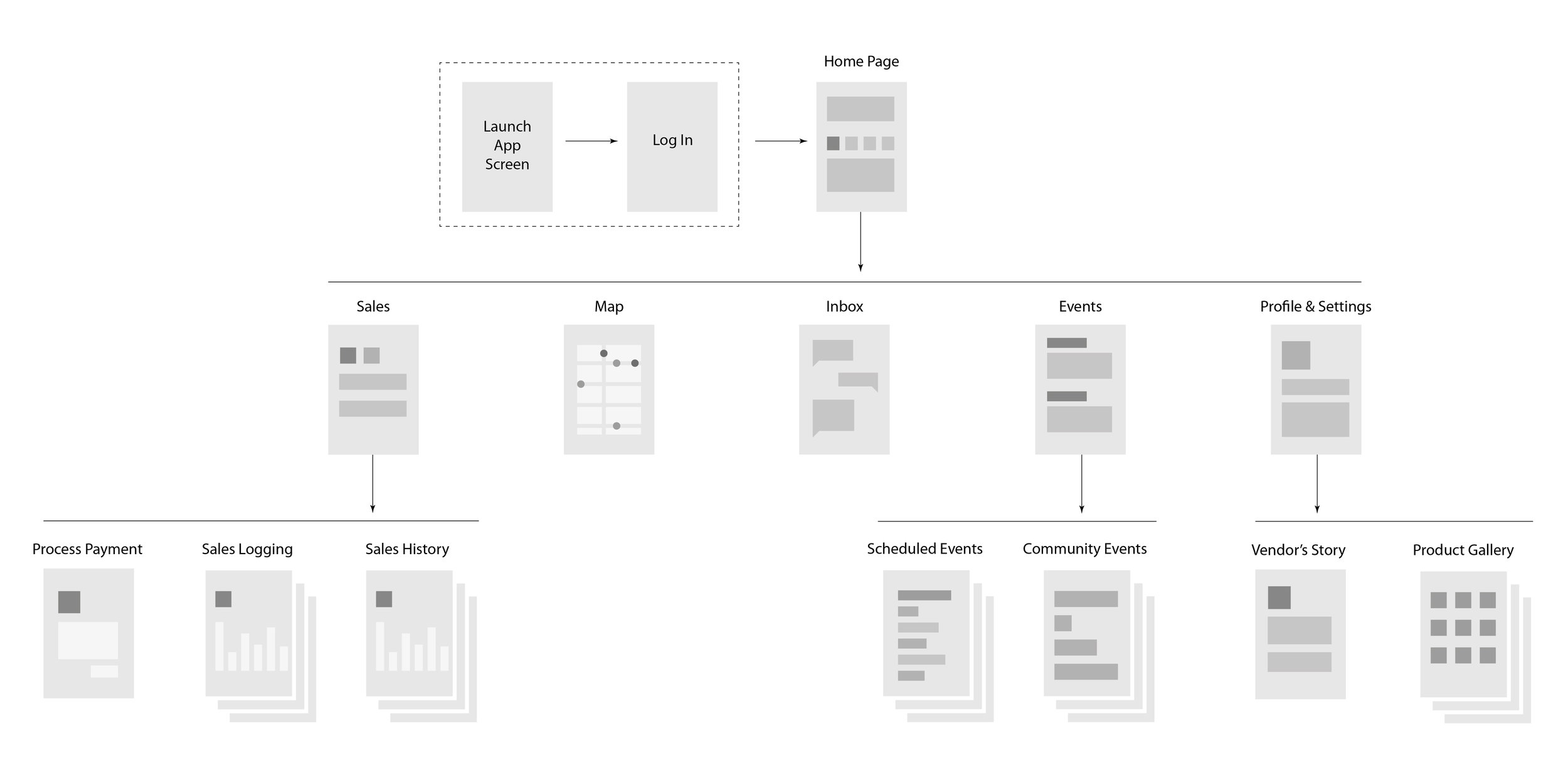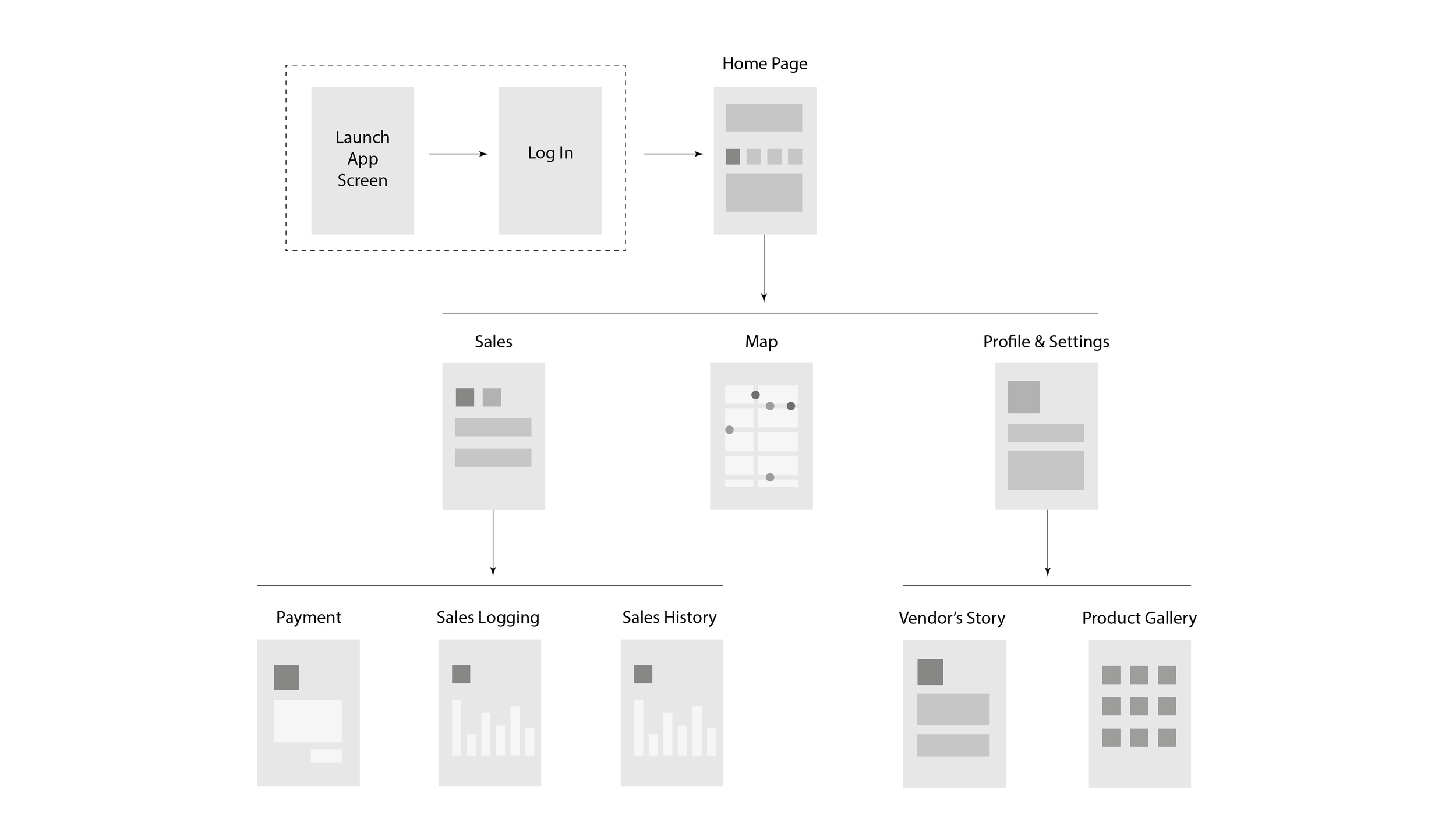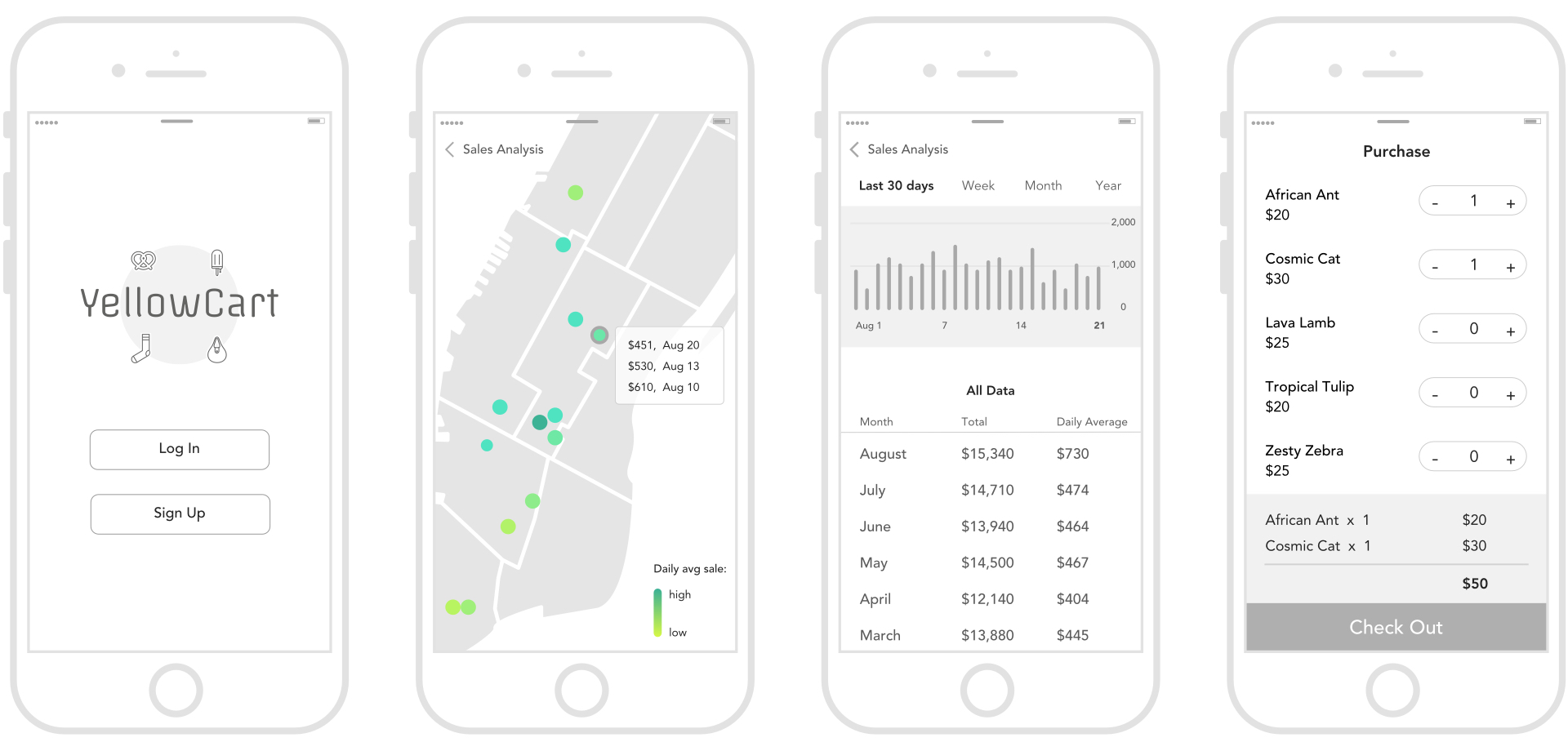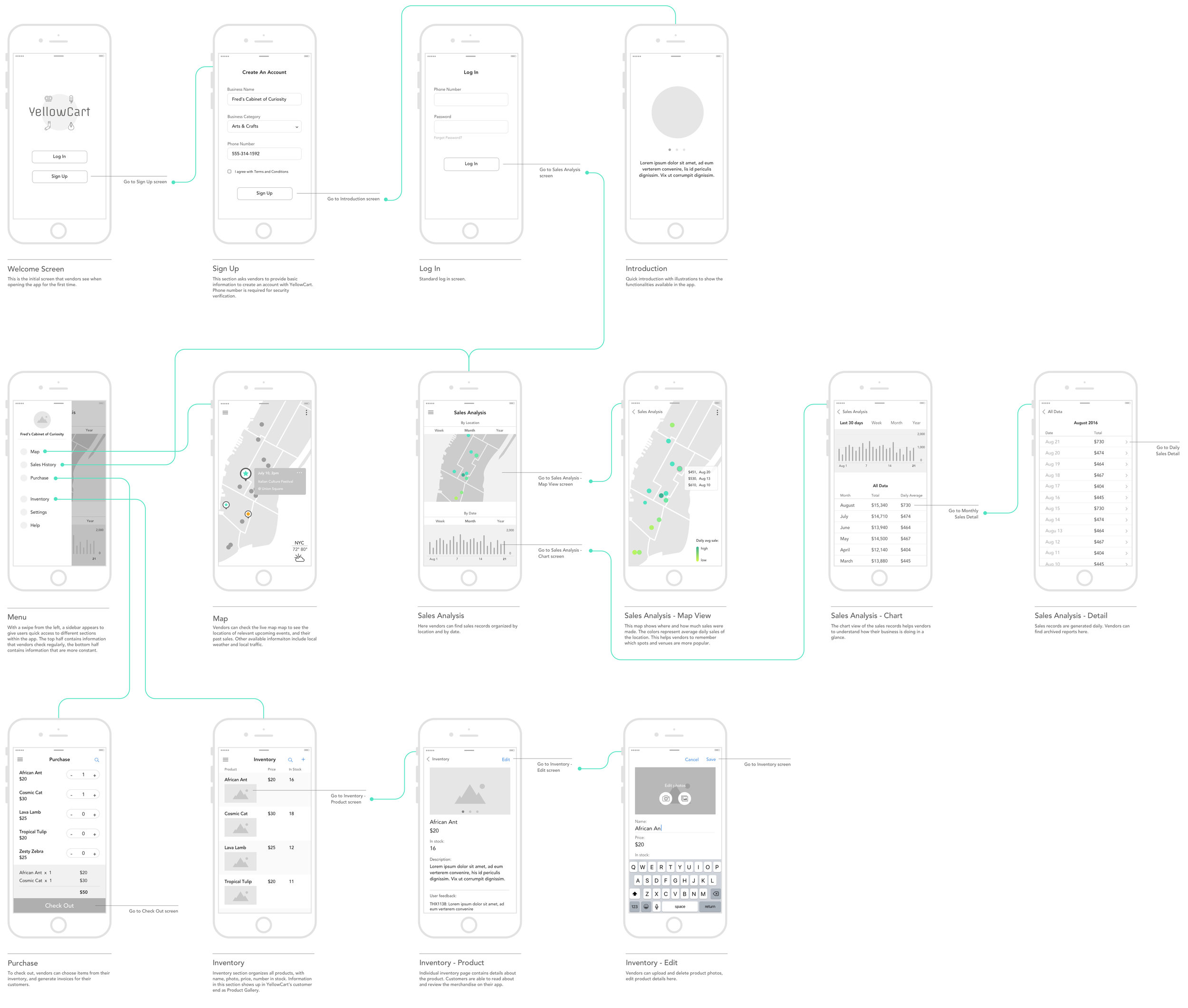
Overview
Street vendors bring diversity and convenience to urban life. However, they are virtually invisible to anyone who is not walking pass by. There are few digital platforms that are dedicated to serve street vendors.
YellowCart tackles the issue by building a platform to connect customers to street vendors, and by using location-based data to provide vendors with business insights.
MY ROLE
YellowCart was incubated at the Modual workshop. Our team of 6 worked organically to design and develop this project. I played the role of project manager to keep the project on track, and was the main force behind UX and UI design. After the workshop ended, I continued to develop the project individually.
CHALLENGES
Because the project was developed in a workshop setting, we were under tight deadlines. The goal was to define user needs, develop an MVP, and pitch to stakeholders all within 4 days. After the workshop, I re-evaluated the project, and updated the business model to be mobile-first.
Discovery Phase
Our team went through internal card sorting to identify market needs, and conducted field research with street vendors and small business owners.
We proposed a business model with these main functionalities:
Searchability
Using GPS to track where the vendor is, customers can visit their favorite vendors like they do with regular stores. Sales won't just occur by chance.
Sales Data Insights
Foot traffic doesn't always mean good business. Analysis of sales data and upcoming events can give street vendors insights on when and where to bring their business to.
Review System
Credibility is a main reason why some customers are reluctant to buy from street vendors. With a review system, customers can buy with more confidence.
Case Study
I analyzed popular services that have location-based search or analysis features, and found each app's pros and cons. I also studied other major players in the e-commerce field, such as Shopify, Google Maps, and Etsy.
High-level Structure
With insights gathered from the research, I mapped out the high-level structures. Below is initial vendor-side structure, and the simplified second iteration after conducting user research.
Mobile-first Approach to Design
YellowCart adapted a mobile-first approach, because unlike businesses with a permanent address, street vendors are inherently mobile.
For visual design, I maintained a minimalistic style, for higher legibility during busy times on the street.
Hi-fi wireframes (vendor side)
UI mock-up (consumer side)












